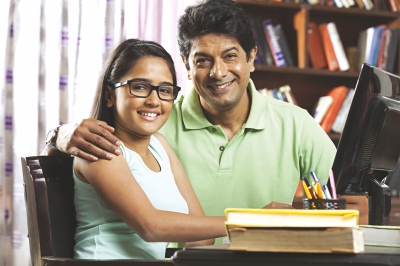5 tips to keep kids engaged with home schooling: UNICEF
The global outbreak of coronavirus disease (COVID-19) has put forth several challenges for parents. They are juggling between work, household chores, childcare and online learning. In view of the rising stress for parents, the United Nations International Children’s Emergency Fund (UNICEF) has shared some tips to help manage children’s education while at home.
The five tips suggested by Robert Jetkins, global chief of education, UNICEF are:
Plan a routine together
Create a routine with online learning, play time and reading time together. But you need not be too strict with them. Though planning and following a routine is important, you may like to offer some flexibility to your children. If your child seems restless and frustrated with an online learning programme, switch to some more active option. Also remember that planning and doing household chores together is great for development of fine and gross motor functions. Try and stay as attuned to their needs as possible, says UNICEF.
Have open conversations
Encourage your kids to open up and express their feelings with you. Drawing, stories and other activities may help to open a discussion. Acknowledge their feelings and assure them that it’s natural to feel scared. Pay them full attention and make sure they understand that they can talk to you and their teachers whenever they need. Warn them about fake news and encourage them to use only trusted sources of information.
They may react differently to stress and so be patient and understanding. Invite your child to talk about the issue and understand how much they already know and follow their lead. Discuss good hygiene practices with them. You can use some routine activities to reinforce the importance of regular and thorough handwashing.
Take your time
Start with shorter learning sessions and make them progressively longer. If you would like a 30-minute or a 45-minute session, you may start with a 10-minute session and build up from there. Combine online or screen time with offline activities or exercises in a session.
Protect children online
Though digital platforms provide an opportunity for children to keep learning, their use also heightens risks for children’s safety and privacy. Discuss how the internet works and what appropriate behaviour looks like on its platforms, with them with your children. Establish rules together about how, when and where the internet can be used. Ensure to set up parental controls on the devices particularly for younger children. Be familiar with the local reporting system in case of any cyberbullying or any untoward incident. Keep the numbers of support helplines and hotlines handy. Remember that there’s no need to share pictures for children or young people or other personal information to access digital learning.
Stay in touch with your children’s education facility
Stay in touch with your children’s teacher or school. Online parent groups or community groups can be a good way to support each other with home schooling.
Also read: Benefits of homeschooling children
















Add comment